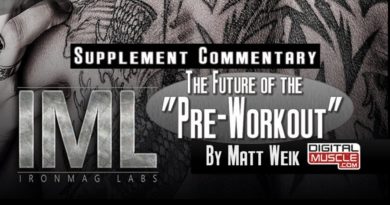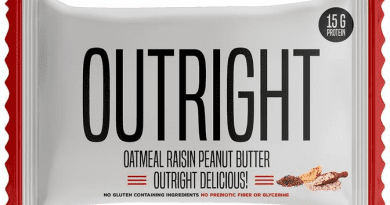Natural Caffeine vs Synthetic Caffeine. Which is Best?
Caffeine is considered to be one of the most frequently used supplement ingredients all across the world in many different products, and for a good reason — it works. One of the most common uses of caffeine is in the form of coffee. There are many people who rely on the caffeine content found in coffee to get them through their day and even workout. Some can get away with low doses, while others need incredibly high doses. However, many people do not know that there are different sources of caffeine, which is why we are going to discuss the two types of caffeine – natural caffeine and synthetic caffeine.
Caffeine is a common ingredient found in drinks such as coffee, tea, energy drinks, and soft drinks like Coca-Cola, Pepsi, etc. There are many sources of caffeine that can be utilized, and they all don’t have the same effects on people. Some sources are natural, plant-based, and some are even synthetically produced.
Let’s take a look at what natural caffeine is as well as what synthetic caffeine is to get a better understanding of how they differ.
Disclaimer: This article is for informational purposes only and is not meant to treat or diagnose any condition. It is recommended that you speak with your doctor before starting any exercise program, changing your daily nutrition, or adding any supplements to your regimen.
Table of contents
Natural Caffeine
If we go back to its roots, caffeine was first found in naturally occurring plants such as guarana, cacao, yerba mate, and berries. In present times, it can be found in over 60 various types of plants.
While natural caffeine can be found and sold as a standalone supplement, it’s generally not the most commonly found product on the shelves and online. Instead, natural caffeine can be found in many different supplement profiles from fat-burners, to pre-workouts, to straight-up energy products.
You may also find caffeine in vitamins and methylxanthines, which balance the up and down of energy from caffeine in your system and help deliver it to your body in a stable manner. Essentially, natural caffeine provides a more sustainable and cleaner boost of energy in comparison to synthetic caffeine, and it also allows for heightened focus and cognition. If you’ve ever used different forms of caffeine, you may have noticed and experienced a quick jolt of energy but then an abrupt crash that soon follows.

Unlike synthetic caffeine, natural caffeine generally does not have any side effects such as insomnia, nervousness, and anxiety, to name a few. It is because of the gradual release of natural caffeine into your system that many of the side effects associated with synthetic caffeine are nonexistent. There is no sudden release that can cause jitters or uneasiness.
Related Article: Caffeine Myths You Need to Know
You can take a glance at the nutritional panel of a product to see if it has natural caffeine or synthetic caffeine, as many of them will break down what source of caffeine is used.
Synthetic Caffeine
Synthetic caffeine is widely used in soft drinks and energy drinks. Synthetic caffeine is quickly absorbed in your system and gives you a sudden boost of energy, which is much faster than natural caffeine. Interestingly enough, and a little history lesson for you, synthetic caffeine was first discovered by the Nazis during World War II. With increasing demand, synthetic caffeine started becoming the norm.
Additionally, synthetic caffeine (such as caffeine anhydrous) is a very inexpensive ingredient to produce. Natural caffeine is something that would need to be sourced, and because of this, synthetic caffeine has become the most widely used form of caffeine. Big companies such as Coca-Cola are highly dependent on synthetic caffeine for their products. Unfortunately, synthetic caffeine has some drawbacks and side effects that could become quite harmful to your body.
There have been some instances and cases where individuals got their supplements mixed up and took two teaspoons or more of synthetic caffeine and, unfortunately, died because of ingesting a lethal dose.
Because synthetic caffeine is absorbed into your body much faster than natural caffeine, it provides a quick spike of energy that many people enjoy but then an equivalent crash as if you hit a wall going 100mph. Although synthetic caffeine and natural caffeine are almost non-distinguishable on a molecular level, the method of how synthetic caffeine is made can trigger significant health concerns, which you need to take into consideration before you decide if you want to supplement with it or not.
Natural Caffeine vs. Synthetic Caffeine
Here are some key points and takeaways from both sources of caffeine.
- Natural caffeine and synthetic caffeine are chemically identical. The big difference is that synthetic caffeine is made from chloroacetic acid and urea, whereas natural caffeine is produced from various plants.
- The most surprising part is that both sources of caffeine affect the body in similar ways.
- Naturally sourced caffeine tends to be harder to source and relatively expensive, which is why labs have started making synthetic caffeine.
- Due to the lower cost associated with synthetic caffeine, many supplement companies prefer to use it over natural caffeine due to the cost-savings advantage.
- Synthetic caffeine undergoes numerous steps to be converted from its initial form, which is ammonia. It is usually exposed to harsh chemicals during the conversion, such as ethyl acetate, carbon dioxide, and methylene chloride. In addition, synthetic caffeine has somewhat of a “glowing” factor. This is removed by cleaning the caffeine with acetic acid, sodium nitrate, chloroform, and sodium bicarbonate.
- It should be noted that not all synthetic caffeine is harmful when consumed in a small amount. But the thing to keep in mind is, you have probably had it this week or even today, unknowingly, as several products have them as one of their ingredients. Because of this, it is recommended that you take a look at the ingredient list of the product you are looking to purchase.
Which Source of Caffeine Is Right for You?
The most significant takeaway when differentiating natural caffeine and synthetic caffeine is that synthetic caffeine can work faster and provide you with a sudden boost of energy. Still, when you are coming down from that rollercoaster ride, and you have a sudden crash in energy, it will be much worse than what you’ll experience through natural caffeine.
Related Article: Is Caffeine Overdose Really a Thing?
It’s beneficial to understand what you are reading on many supplement labels out there. If you see the word “caffeine” on the ingredient list of a product, it is very like that it is synthetic caffeine (caffeine anhydrous). If it is a natural source, you will see the actual name of the plant products used, such as green tea extract, green coffee beans, or guarana, to name a few.
Now that you know the basics of the varying sources of caffeine, you can make a more informed decision on whether you prefer to use a natural caffeine source or a synthetic caffeine source to help provide you with the results you want and need to achieve your goals.


*Disclosure: This article may contain affiliate links or ads, which means we earn a small commission at no extra cost to you if you make a purchase through these links. These commissions help support the operation and maintenance of our website, allowing us to continue producing free valuable content. Your support is genuinely appreciated, whether you choose to use our links or not. Thank you for being a part of our community and enjoying our content.
PLEASE CONSIDER SHARING THIS ON YOUR SOCIAL MEDIA TO HELP OTHERS LEARN MORE ABOUT THIS TOPIC.





